By Oluwayemisi Mafe
Photo of Film Co-op ED Tony Merzetti and member Yohann Kamto
In this issue of the NBFC Weekly E-news, we spotlight a rising creative force in the New Brunswick film community: NB Film Co-op member Yohann Kamto. A multidisciplinary storyteller with a penchant for tackling society’s complexities through humour, emotion, and imagery, Yohann’s journey from high school poetry to producing and directing original films is a testament to talent forged through persistence, mentorship, and the courage to dive in headfirst.
Through the Jane LeBlanc Legacy Fund’s provincial Mentorship Program, an internship with Strike Pictures, and academic training at the University of New Brunswick (UNB), Yohann has been cultivating a unique voice, one rooted in experimentation and resilience. In this candid interview, Yohann reflects on navigating creative breakthroughs, lessons from cramped film sets, and what it really means to “just give it a shot.”
Whether you’re a fellow student, a member filmmaker, an aspiring creative in the community, or a future JL applicant or Film Co-op member, Yohann’s story will both inspire and energize you.
From frozen poetry to blood-splattered rom-coms, Yohann Kamto is shaping New Brunswick’s creative landscape one bold script at a time. Dive into his story in this week’s NBFC Weekly E-news interview.
6. Can you share a bit about a specific school project or moment that affirmed your path as a filmmaker?
Yohann: My most recent project. There was another film I did before that, but my most recent one was a film that I received a grant from the NB Film Co-op for. I was the director, writer, and producer on it. It was a great experience that showed me that I want to continue making films and telling my stories.
7. Congratulations on being part of the 2024 JL Mentorship Engagement Program! What drew you to apply, and how has the experience shaped you as a creative?
Yohann: I was looking for more. My life was all about school. My classes were mainly theoretical, and I needed more hands-on film experiences, so I started discussing my concerns with my teachers. It was a teacher at UNB who recommended that I apply to participate in the program. Initially, I wanted it for writing because I was more focused on writing at that point, specifically creative writing. I also didn’t feel like I had enough experience yet to undertake a film mentorship. Luckily for me, Thandiwe McCarthy chose to be my mentor, and it was a great experience. It was one of the pivotal moments in my career. My mentor taught me how to improve my writing and poetry, but more importantly, he taught me how to make a living from my art and how to write grants, allowing me to pursue the projects I wanted to undertake. I’m very grateful to him for that.
8. Mentorship can be a powerful force. What have you learned from your mentor through the program that has impacted your journey?
Yohann: Do you know the saying? “Give it a shot.” I would say that’s probably the most important thing I have learned from my mentor. It’s okay if it doesn’t work out, but you have to do it. That’s powerful because I received other creative opportunities by incorporating that new belief into my life.
9. What advice would you give to other emerging filmmakers considering applying to the Jane LeBlanc Legacy Fund for a grant or seeking mentorship?
Yohann: Use your time wisely and ask your mentor questions. Ask why they do the things they do, even if it seems insignificant. Often, they do things that are successful automatically, and that could be a key creative step that you are missing in your creative toolbox.
10. You’ve had some exciting placements with film companies. Could you tell us about those experiences and what you learned from them?
Yohann: I’ve worked with several film companies. I learned how to utilize a location space and position it to achieve the desired look. These internships helped develop my creativity, as well as small things like bringing an extra clip or tape to set to make the minor adjustments that are often needed. Additionally, I learned how to produce a script within budget constraints.
11. What was it like stepping into a professional film environment for the first time? Any memorable moments or“aha” learnings from the set?
Yohann: My aha moment came when I realized how small film sets can be. There are numerous people on set, each with a specific role to play. It's crucial to remain very quiet once the camera and sound start rolling. If any noise is made, the sound recordist will ask everyone to be silent. Ultimately, I had a lot of fun during the experience, which reassured me that this is the right path and career for me.
12. Were there any unexpected challenges, and how did you navigate them creatively or professionally?
Yohann: There are time-based challenges to consider when making a film. Many people assume that the process is quick, but that’s not the case. Once you get into the editing room, you often find yourself debating various aspects with others. For me, collaborating with others and being deeply involved in a project can be quite challenging. For instance, during the editing of a 10-minute project, it took us three hours just to agree on one scene! It's crucial to learn how to step back and appreciate perspectives beyond your own. We needed to figure out how to collaborate, reach agreements, and compromise. There are people in your creative network—like the Film Co-op staff and members—whom you can turn to for support, and that’s really what it’s all about. All these experiences have taught me a great deal.
NB Film Co-op ED/UNB film teacher Tony Merzetti and NBFC member filmmaker Yohann Kamto



